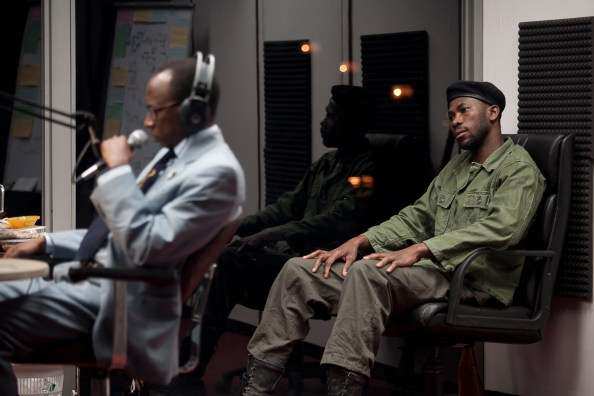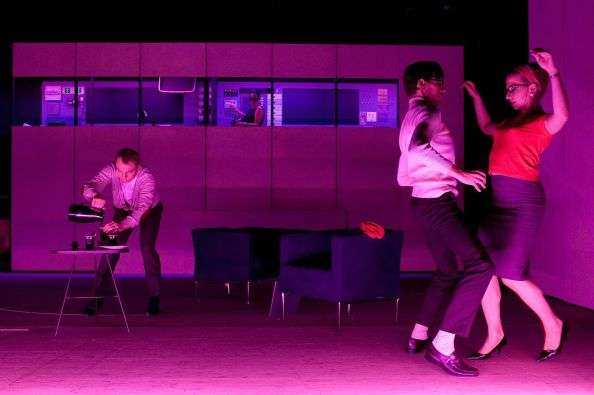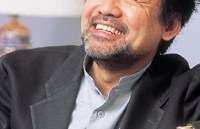WASHINGTON, DC | International documentary theater is on the rise. In the United States, the trend of documentary theater, popularized by writer/director Emily Mann and writer/actor Anna Deavere Smith, has been embraced by such new U.S. companies as Nature Theater of Oklahoma, Sojourn Theater, Pig Iron, Plastic Theater and Tectonic Theater Project, just to name a few.
The German-speaking countries have led the way, too. Some of the most famous European names working in this genre are Rimini Protokol, Gob Squad, She She Pop, and God’s Entertainment.
To track this creative upswing, the Austrian Cultural Forum, Goethe-Institut Washington, Embassy of Switzerland and Georgetown University’s Laboratory for Global Performance and Politics have launched “Theater of the Voiceless,” an international symposium and festival on documentary theater that runs June 16 to June 19 at various venues in Washington, D.C.
By all accounts it’s a unique project, because it signals a transnational cooperation among the Germans, Swiss and Austrian governments abroad. Led by the festival’s artistic director Gillian Drake, “Theater of the Voiceless” zeroes in on major European names that have yet to make their mark on the U.S. cultural landscape: playwrights interested in using their art for social change: Konradin Kunze and Sophia Stepf (Germany), Milo Rau (Swiss founder of the International Institute of Political Murder), and Kathrin Röggla (Austria).

The symposium itself, which takes place Monday June 17 at Georgetown University, has been ingeniously designed to offer comparisons of creative approaches among leading practitioners of the genre in Austria, Germany, Switzerland and the U.S. Ping Chong + Company, one of the most trail-blazing documentary theater artists in the U.S., will give a presentation of its commitment to the form.
Mutual inspiration and artistic dialogue seem to be guiding forces in “Theater of the Voiceless.” Two D.C.-based companies, Forum Theatre and Taffety Punk Theater Company, are devising their artistic responses to the German-language docu-theater on hand. Directors from major U.S. resident theaters (Arena Stage at the Mead Center for American Theater, Shakespeare Theatre Company and the Studio Theatre) are deeply involved in staging these German-language works for American audiences.
Why should Americans be interested in this festival? Who is the audience? Why this festival now? Documentary theater, says Gillian Drake, “is a rich, fecund, imaginative genre. To use first person research, verbatim transcripts and news articles might seem dull and reportage. And yet the genre of documentary theater calls for new techniques, new visuals, new perspectives, new ways of telling a story that are not narrative and chronological, or even logical. Young people flock to these new ways of creating theater that really matters.”

Washington, D.C. is very much an international city. Drake calls it “the most international city in the country.” The transnational cooperation among the Goethe Institut, Austrian Cultural Forum and the Swiss Embassy is called Zeitgeist DC. “The group,” Drake says, “strives to create events and cultural opportunities to engage in current, deep and provocative questions that is shared by their US neighbors. They like to take on big topics (urban hunger and race relations, for example) and to create a dialogue with other people and organizations.”
The goal of Georgetown University’s Laboratory for Global Performance and Politics is to explore the intersections between theater and politics on a global platform. That mission, Drake says, was “of great interest to Zeitgeist partners.”
The international works being presented grapple with urgent themes: the challenges of global migration, government-sponsored genocide, terrorism and other man-made disasters.
In a small small world, Konradin Kunze and Sophia Stepf detail the life of a Bangladesh man, Hamidur Rahman, who attempted to apply for asylum in Germany and failed. “Fifty thousand people seek asylum every year in Germany but only a minority of them are granted it,” says Stepf. “As for the others, they are either sent back or live illegally.” After being rejected by Germany, Rahman attempted to immigrate to Canada and seek asylum there by crossing through Greenland on foot. He collapsed on the way, was rescued by a helicopter, and sent back to Germany, where he committed suicide.
In Hate Radio, Milo Rau re-enacts the hate speech in Rwandan media which led to the genocide. On April 6, 1994, the airplane of the Rwandan President, Habyaruman, was hit by two missiles as it tried to land. This event signaled the beginning of the most brutal genocide since the end of the Cold War. In the months of April, May and June 1994, the Central African state murdered an estimated 800,000 to 1,000,000 of its Tutsi minority and thousands of moderate Hutus. The tools used to humiliate and kill people of all ages and genders were simple: machetes, sticks, and a few guns. The most powerful instrument of the genocide was the “Radio-Télévision Libre des Mille Collines” (RTLM).
In Waste Kathrin Röggla, Austria’s leading documentary theatre playwright, tells an “eerily funny, highly-stylized theatrical performance based on in-depth research about the societal effect of omnipresent threats of disaster in our high-tech world,” according to a prepared description. “Feeling powerless, individuals begin to live a secondhand existence, longing for the ultimate catastrophe in which they can play a part.”
Adds Drake, “Theater, as we have known it for the past 100 years, is changing. Our old comfortable theater with well-made stories which delve inner emotional lives of characters won’t be eradicated, but a whole new way of making, experiencing and realizing theater is moving in.”
The daylong symposium of “Theater of the Voiceless” will be held from 11 am to 10 pm on Monday, June 17th 2013 at Georgetown University, Davis Performing Arts Center (37th and O Streets NW, Washington, DC).
To RSVP and for more information about the entire Festival, visit www.zeitgeistdc.org.

Related articles
- Historic Seattle theater to close (q13fox.com)
- Des Plaines Theatre to reopen Saturday (dailyherald.com)
- Front Row: An artist’s next act (utsandiego.com)
- Ringling Theatre gets $513K grant for restoration (wiscnews.com)
- Fun Facts About the Historical Hale Theater in Gilbert, Arizona (local.answers.com)



